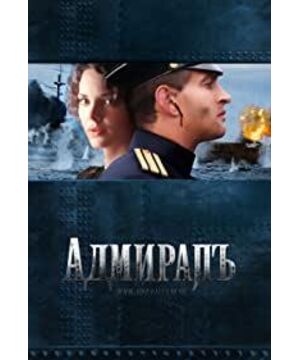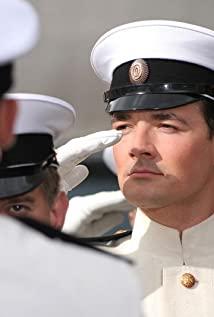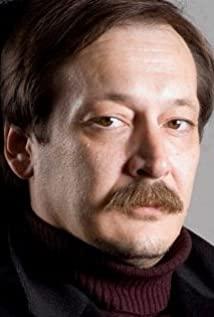The crystal cup
believes that seeing the crystal cup shattered again at the end, when the twilight Anna and Kolchak finally danced together in the fantasy, the audience was hard not to cry. However, I always felt that it was foolish to make the love element the focus of this film. True, as a Zhang Lingfu-style general, the handsome and intelligent Kolchak has a wonderful emotional story. But there are clearly more interesting things to dig deeper into this character, such as his being an outstanding explorer and geographer, his serious lack of political talent and tragic character, and the disappearance of the aristocratic class he defended and symbolized. There are so many love stories in the whole film that the film loses the opportunity to deepen, which is the biggest failure of the film. In fact, Kolchak is quite scum by current standards. Even the Soviet officer who finally executed him couldn't help complaining and asked how many wives he had. Anna's love is moving, but it's also really humble. This kind of strange concept of love is good to mention, there is really no need to expand it.
Sabre
Facing the soldiers mutiny to surrender the officers' weapons, Kolchak threw his saber into the sea. At the end of an era, the most regrettable thing is not the obliteration of a group or a class, but the disappearance of a spirit. After describing Kang Youwei's daughter, Kang Tongbi, the representative of the last group of celebrities in the old era, Zhang Yihe said that all courtyards in Beijing should be demolished because no one deserves to live in them. The most eye-catching thing in this film is not the love story of the male protagonist, but a group of Tsarist Russian aristocratic soldiers shaped by him as the center. They were brave, loyal, and heroic, just like the Soviet Russian soldiers afterward, but they had some of the romance, elegance and softness of humanity of the old aristocrats. In many Soviet and Russian film and television works, the image of the white army officer is not unsightly. For example, in "Forty-first", a handsome and kind noble white army is even portrayed, and he has a touching love with the heroine. Because for the military Russian nation, a soldier is a soldier, and this identity is separate from class. Of course, the director's preference is still obvious. All the generals of the White Army are suddenly tall, heroic, pious and upright, but the generals of the Red Army are all disheveled, cunning and treacherous, and the bottom-level soldiers who make trouble are all fat-headed and big-eared, and they are idle on weekdays. But to be fair, most of the old Russian soldiers are worthy of praise. They have noble personal morals and never narrow patriotic feelings. For example, Lieutenant General Kappel in the play has been leading the way in the process of marching into Irkutsk. After falling into the ice water, he cherished his subordinates and did not wear the leather boots that his subordinates had taken off. In the end, his feet were frostbitten and had to be amputated. How can such a general not make his subordinates work hard for him. Incidentally, his subordinates remained loyal to the general even after his death. They first carried the coffin and traveled to Irkutsk, where they lost fire with the Red Army, and then went into exile with the general's remains to Harbin. The remains of General Capper have been kept in the Church of St. Yvell in Harbin. During the Cultural Revolution, the church was tragically destroyed, but the remains of the general were fortunately preserved. In 2006, the remains were transported back to Irkutsk and finally buried in the Donskoy Monastery in Moscow in 2007. There is a famous story about the concept of the White Army's nation during World War II. At that time, the German army hoped to instigate some old Russian officers from old Tsarist Russia and set up a Russian puppet regime against the Soviets, but an exiled old general sternly refused. He said: "If it was ten years ago, I would have joined because the CPSU killed the tsar. But now, they are building the motherland." Kolchak threw his sword into the sea to symbolize that he did not want this to happen. The sheer spirit and dignity of the military were insulted. In this way, the sword has passed away, and the people of Sri Lanka are still alive.
cross
Finally, there are many religious ceremonies and prayers in the 818 film. Like Kolchak, the vast majority of the White generals were devout Orthodox Christians. The rise of the Soviets is a declaration of war and revenge from the bottom society to the top. Its essence is a class war, and the war of faith is actually a superficial decoration. The White Army of Tsarist Russia was a traditional devout believer, but the Red Army, especially the lower-level officers and soldiers, who fought against it, probably not many really understood and believed in the Soviet belief. Instinct survival and revenge. Of course, the Soviet Union succeeded in popularizing their beliefs, albeit for just over 70 years, using an approach that bordered on violence. During this period, ancient beliefs such as religion were brutally suppressed, which is a later story. The key point is that the battle between the Red Army and the White Army is essentially a class struggle, not a war of faith. Why did the director emphasize religion? Personal opinion, first, this is a criticism of the long-term suppression of religious beliefs in the former Soviet Union. Second, it is also a very smart approach to avoid discussing class struggle. Because from the perspective of class oppression and social justice, the Whites are unjust. Nobles are born with original sin. Since it is to shape them positively, let's weaken this. There have been too many movies with the theme of class struggle in the former Soviet Union.
I wrote some random thoughts. Finally, I want to say that the word revolution should now be restored to its gender identity. Revolution is not only bloodshed, but also bloodshed for the "enemies" who are being revolutionized; it not only brings light and progress, but may also bring darkness and chaos. There are many paths to a free and just future, but the revolutionary way to resort to violence should come less with the increase of human ingenuity.
View more about Admiral reviews











